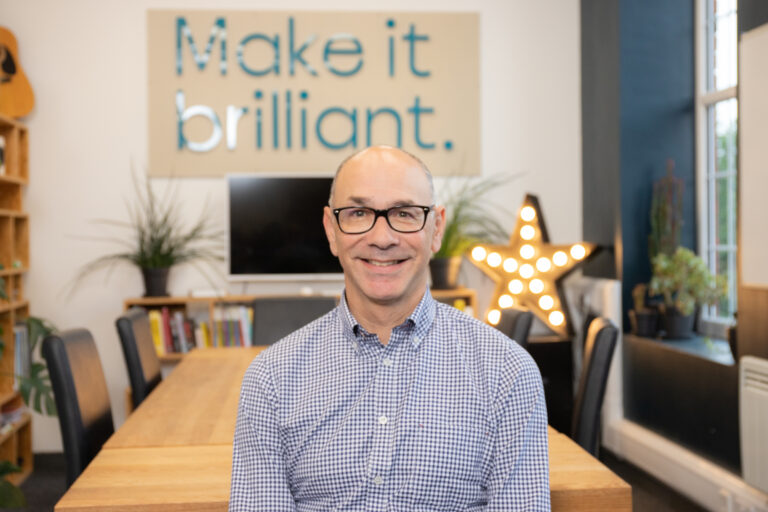Clive Goldstein, former MD of The Union and current Non-Executive Director at Brilliant, asks why more agencies don’t take advantage of a valuable resource open to all of them.
What does big business, and many much smaller businesses, know that the agency sector doesn’t seem to?
With at least 6,000 Non-Executive Directors (NEDs) on the boards of the UK’s top 1,000 UK companies, it’s commonplace for big business to hire part-time senior people to give independent input to the success of the company, delivered at Board level.
But it’s not just for big business – it’s routine for charities and many other smaller businesses too.
Different companies cite different key benefits, but a dip into online research will tell you that NEDs use their experience to bring a wide range of positives – from fresh and objective strategic perspective, to independent oversight and commercial rigour. All this directed towards the efficient running and commercial success of the company.
An NED should provide appropriate challenges to the board and company leadership, assist in company strategy and direction, and act as a valuable mentor to key directors when they need a good sounding board on tough issues.
Agencies, whatever their size, angle, or outputs, are uniquely people-based, and operate in an oversupplied competitive market.
So once you’ve hired the best team you can, created the most appropriate systems within your agency, and many more operational aspects, what more can an agency do to increase its chances of success? Where do you look to find those marginal gains that will be vital to you achieving what you set out to do?
As the former MD of The Union in Leeds and former management Board Director at Poulters and The Leith Agency, I see huge benefits for independent, owner-managed agencies. I set up and was MD of one for 19 years, so there’s not much I haven’t encountered in the types of issues and decisions facing agency owners – I’ve walked those hard miles.
Today’s agency owners might face some difficult issues – or opportunities – for the first time, and may be unsure how to react. As an NED, my experience allows me to be confident in my advice, providing an understanding, experienced and confidential ear as a guide.
Often described as a helicopter view rather than a ground view, the effects of being able to see the wood for the trees can be significant.
Why don’t more agencies hire NEDs?
One of the most obvious reasons not to appoint an NED may be a lack of understanding about what the NED’s role might be and what they can bring to the table. This isn’t helped by the title itself being a possible misnomer, with ‘non-executive’ potentially implying that NEDs don’t roll up their sleeves and get stuck in. I prefer to be called an ‘independent director’, which is closer to reality.
Is it the cost? The financial scale of agencies and often slim margins can of course make the NED decision seem like another cost to be avoided. Those who view it as an investment really reap the rewards.
From my perspective, it’s an opportunity to get the vast experience and expertise of someone most agencies might not be able to afford – or need – full-time for a fraction of that, by appointing them as a NED. A huge amount of often game-changing contributions can be made in a couple of days a month.
For most of my agency career, I’ve worked on major multi-million pound campaigns, and clients usually felt that a small investment in research (like pre-testing) – often around 1% of the budget – could help safeguard and make the other 99% of expenditure more effective. I view an agency’s investment in a NED in the same way.
What about time? There’s no doubt that running any business, an agency in particular, demands massive time commitments especially from the business’s leaders. So why add extra people to engage with, and more meetings?
Time is a precious commodity inside any agency, so it’s important to focus on clearly-defined meeting and discussion objectives and outcomes. Agency leaders always have multiple things to do, but a good NED will help ensure that the company’s strategic matters and overall direction are not forgotten about among the daily operations and issues.
One of the paradoxes is that agencies can be so focussed on delivery for clients and putting internal fires out, that they can forget about their own business and its needs. As an independent director I don’t allow that to happen.
For me I like to meet in person because I think the chemistry between myself and the agency board is important, but like all other meetings these days, remote working and virtual meetings make working with a NED very efficient.
Someone once queried whether NEDs could have the right input if they didn’t know as much as the business’s leaders – perhaps a nod to the ever-changing landscape of digital and social media.
Obviously, they need to have a proper understanding of what the business does, and how it does it, but the NED’s business, commercial and agency experience is what matters, and their independent and objective stance is crucial.
As NEDs tend to have a portfolio of multiple roles, everything is always 100% confidential, just like agencies’ approach to important client information.
Will it really help? I’m bound to say yes, but what I can also say is that I wouldn’t still be doing this if it didn’t really work. It’s a big claim but I believe I’ll help make an agency operate more efficiently and perform better, doing a better job for its clients, and being a better and more successful agency all-round.
And what’s the view from the NED’s perspective? I really love doing this – I’m a long-term agency careerist and still love it. I can’t think of a more appropriate way to contribute to a profession I’ve enjoyed over 30 years in.
I’m rightly expected to add value, and I do. I see it in the same way as an agency being expected to make its biggest and deepest contribution to a client – that challenge spurs me on.
I like to inspire and help the agency do what it does best, so everyone wins.











